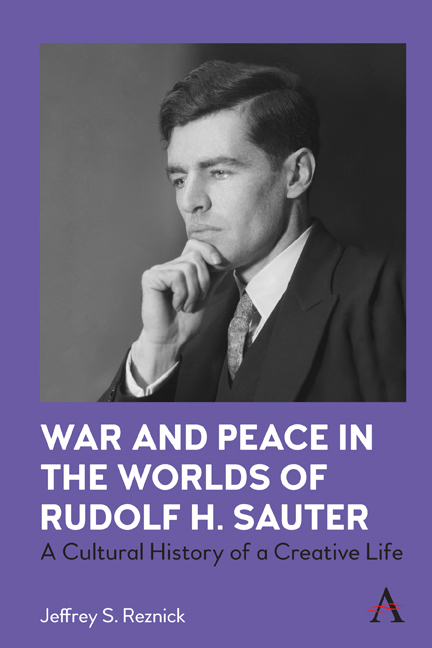Book contents
- Frontmatter
- Contents
- List of tables and figures
- Acknowledgments
- Introduction: Reconstructing a Creative Life
- Chapter 1 Beginnings, 1890–1914
- Chapter 2 Internment, 1914–19
- Chapter 3 Recovery, 1919– 24
- Chapter 4 Artistry I, 1924–39
- Chapter 5 Artistry II, 1939–50
- Chapter 6 Reflections, 1950–77
- Conclusion: Legacy
- Epilogue: In His Own Words
- Selected Bibliography
- Index
Epilogue: In His Own Words
Published online by Cambridge University Press: 13 May 2022
- Frontmatter
- Contents
- List of tables and figures
- Acknowledgments
- Introduction: Reconstructing a Creative Life
- Chapter 1 Beginnings, 1890–1914
- Chapter 2 Internment, 1914–19
- Chapter 3 Recovery, 1919– 24
- Chapter 4 Artistry I, 1924–39
- Chapter 5 Artistry II, 1939–50
- Chapter 6 Reflections, 1950–77
- Conclusion: Legacy
- Epilogue: In His Own Words
- Selected Bibliography
- Index
Summary
Between Two Worlds*
It was a huge building with a tower at each end, situated high on a hill and dominating the whole of North London. Once an Entertainment Centre and now the home of the B.B.C., Alexandria Palace had been converted into a great Prisoner of War Camp to house so-called “Enemy Aliens” married to British wives. It had the advantage that families of those living in London could more readily visit. It was surrounded by extensive grounds which were supposed to be kept in order by the prisoners, presumably against eventual “Peace.” I can only speak of this one camp, for, though threatened with removal to the Isle of Man where single men were incarcerated I was never transferred on compassionate grounds … .
With the exception of myself and one or two others, perhaps the youngest in the camp, the three thousand or more inmates were married men of all conditions of life: Business men and Labourers, Waiters, Carpenters, Joiners, Watch-repairers, Bakers, Gardeners, Cobblers, Jewellers and we had Chefs from the best Hotels— if there had only been the material to cook. Thanks to the intervention of the Quakers and a committee of well-wishers under Dr Markel, facilities were arranged and materials supplied so that they might carry on trades or hobbies as best they could, working in difficult conditions on their beds. But this kept them going and those who could do some work were the lucky ones. The changes were that if you took a broken watch to Harrods in those days it would be repaired in the “Palace.”
For those who find themselves by circumstances “between two worlds” so to speak, there are always special problems. In my case, it happened that I was born in Germany in 1895 of parents living in England. My father, George Sauter, as a young painter, had emigrated to this country in 1889 where he hoped to find greater freedom than under the academic outlook of this native Munich. Here he married Lilian, elder sister of the author John Galsworthy, the creator of the Forsytes and became involved in her traditional and near-Forsyte background. He made a career for himself and our London home was open house for Artists, writers, musicians and men of distinction from all over the world.
- Type
- Chapter
- Information
- War and Peace in the Worlds of Rudolf H. SauterA Cultural History of a Creative Life, pp. 185 - 196Publisher: Anthem PressPrint publication year: 2022



